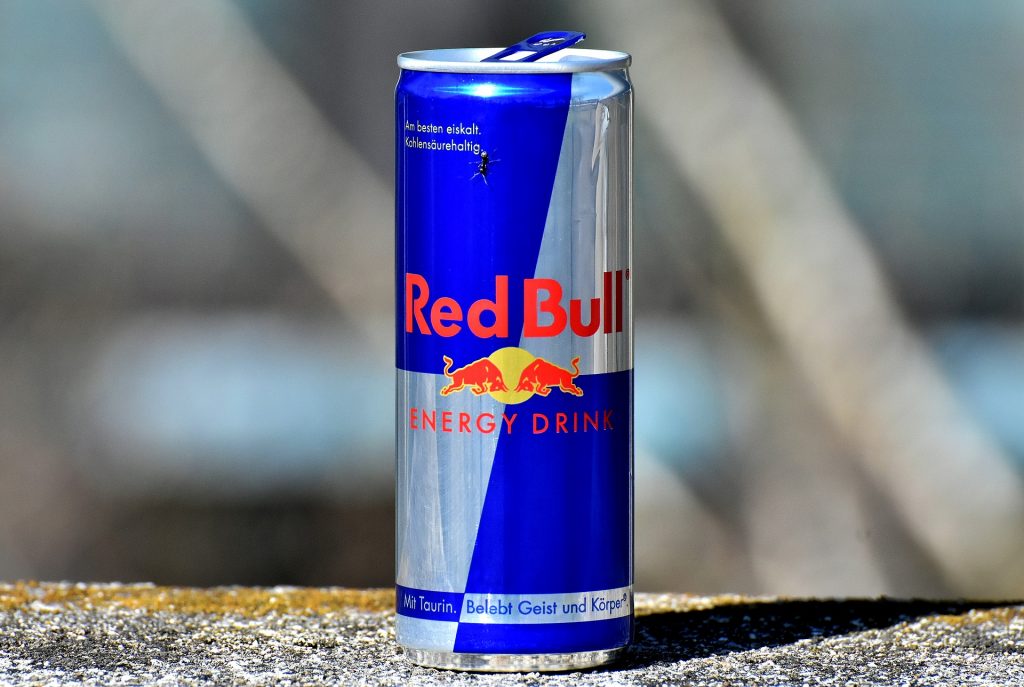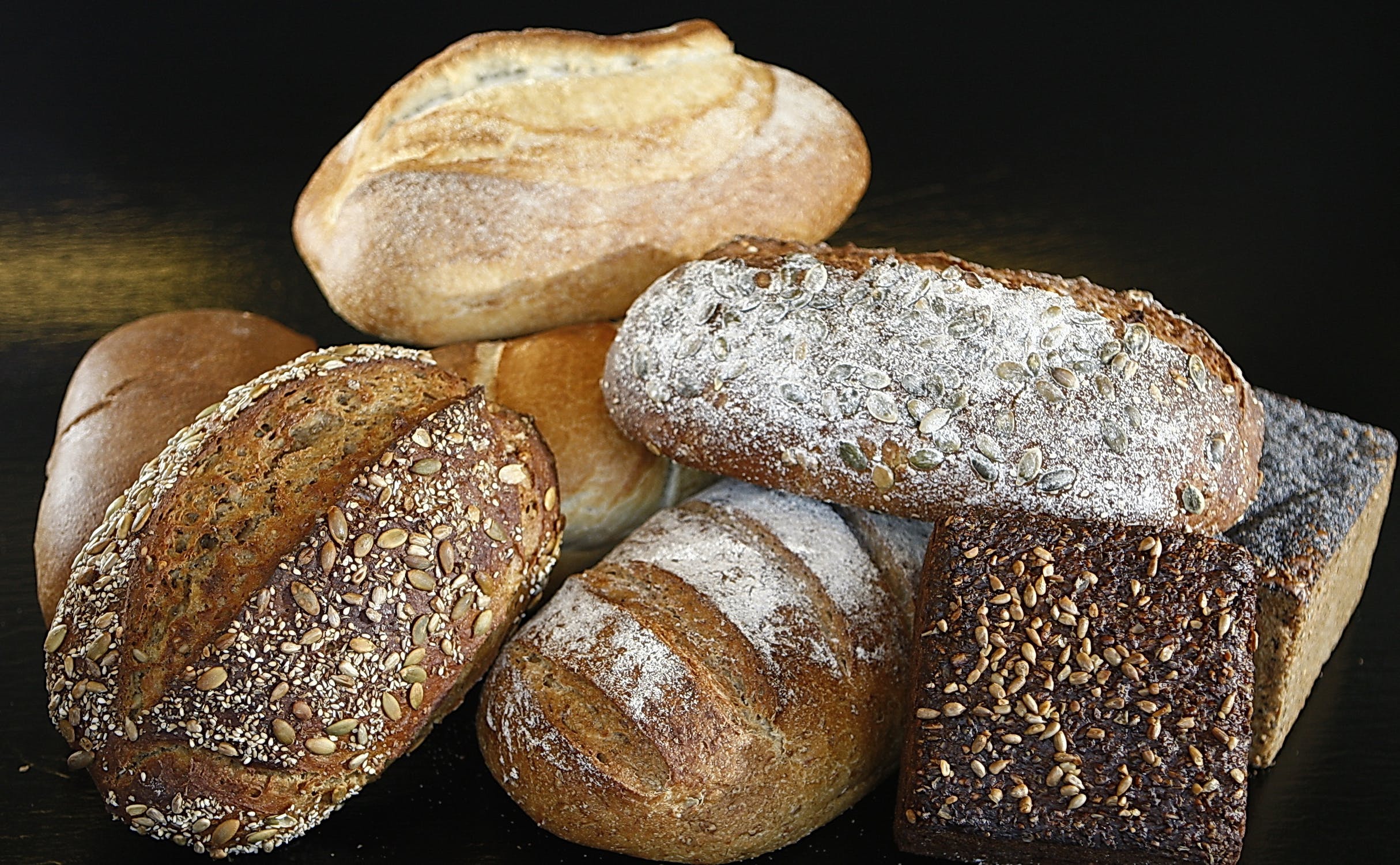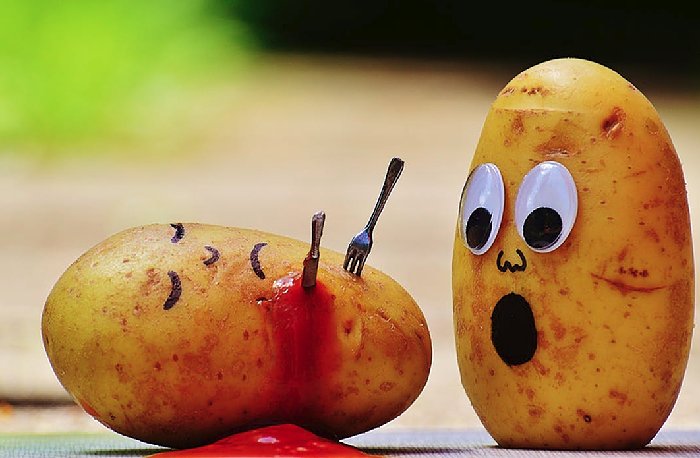May Newsletter | Genes determine appetite?
May Newsletter now available!

by Coach Beverly Thomassian RN, MPH, CDCES, BC-ADM
For this newsletter, we highlight some key finding in the newly released consensus report, “Nutrition Therapy for Adults with Diabetes or PreDiabetes.” We also explore the rising incidence of fatty liver disease in youth and provide encouragement to keep active with the “Don’t Sit, Get Fit Campaign.” Nurse Appreciation Week kicks off May 6th. Let’s take a moment to shout out and recognize the contributions of our amazing nursing colleagues.
- Nutrition recommendations in bite-size pieces
- This mutation makes people feel full – All the time
- Why are so many Latino children developing fatty liver disease?
Click here to read our newsletter!
Consuming energy drinks may impact mental health
Energy drinks have grown in popularity over the past few decades. New research suggests a correlation between consuming energy drinks and mental health issues.

“A study, conducted by psychologists at the Walter Reed Army Institute of Research, followed more than 600 combat soldiers in their first seven months home after deployment.”
Adler’s research team asked soldiers about energy drink consumption and presence of mental health issues like post-traumatic stress, fatigue, aggression and sleep deprivation.
The survey results were startling: the soldiers drinking two energy drinks or more per day were more likely to have mental health issues than those who didn’t consume energy drinks.
Dr. Amy Adler and team set out to investigate the mental health of soldiers returning home. Adler sent out a questionnaire to 600 deployed soldiers, and discovered that 75% of soldiers surveyed drank energy drinks everyday. She quickly noticed that the prevalence of energy drink consumption was associated with increased risk of mental health issues.
“Depression and sleep problems, increased aggression, anxiety, substance abuse, things like that. All of those are risk factors were associated with drinking excessive amounts of energy drinks.”
Senior Psychologist Dr. Amy Adler, hopes that their research will shed light on how energy drinks can affect mental health not only in soldiers but civilians as well. Adler did not state that the energy drinks cause mental health issues, but it is a factor to consider when the soldiers return. Something they can control to help themselves feel better.
“There may be other high-risk groups out there like police, firefighters, emergency responders, or other groups this may apply to – or not,” Dr. Adler explains. “These groups are groups we want to pay attention to because there might be a way to mitigate the mental health problems out there.”
Energy drink consumption in the Iraq war is being compared to tobacco use during the Vietnam war.
“They (energy drinks) were rampant,” Greg Gebhardt, an Iraq veteran living in Raleigh, recalls to ABC11. “It was almost like a lifestyle. The soldiers used to joke as long as we have armed forces in the United States, the tobacco industry and energy drink industry will be just fine.”
Gebhardt managed the dining facilities at a base in Baghdad. He said energy drinks were very popular, not for taste but for caffeine-related effects.
“I think it served a purpose to give it that extra boost, to push them a little further, to keep their cognitive functions about them for that 16th or 18th hour of a long day in 120-degree heat,” said Gebhardt.
The consumption of energy drinks is widely common in the U.S. particularly with teenagers or adults who work long hours.
“The National Center for Complementary and Integrative Health, a division of the U.S. Department of Health and Human Services, reports men between the ages of 18 and 34 years to consume the most energy drinks, and almost one-third of teens between 12 and 17 years drink them regularly.”

Dr. Branson Page, a physician at WakeMed’s Emergency Department believe that people often overlook the risks of consuming too much caffeine. Most people are unaware that too much caffeine can cause health issues.
Caffeine stimulates the central nervous system which increases heart rate and blood flow. If consumed in access, can cause anxiety, heart palpitations, agitation, and other physical symptoms.
Dr. Page believes there are many healthy alternatives if you are looking to be more awake and aware during your day. Exercise and restful sleep are extremely beneficial to mental awareness and overall positive mental health.
To learn more: Research raises concerns about use of energy drinks in military – ABC11
Sign up for Diabetes Blog Bytes – we post one daily Blog Byte from Monday to Friday. And of course, Tuesday is our Question of the Week. It’s Informative and FREE! Sign up below!
[yikes-mailchimp form=”1″]
Teens weight self-perception affects health
 American teenagers who incorrectly perceive their weight are more likely to have unhealthy eating habits and be less active overall. Teenagers who accurately perceive their weight are more likely to make healthy choices and not take part in risky diets.
American teenagers who incorrectly perceive their weight are more likely to have unhealthy eating habits and be less active overall. Teenagers who accurately perceive their weight are more likely to make healthy choices and not take part in risky diets.
The study analyzed data from over 12,000 American teens, 32% of which were obese or overweight.
- “Nearly 23 percent of the teenagers studied, misjudged their weight.
- 11.6 percent incorrectly believed they were overweight, and
- 11.3 percent believed they weighed more than they should while thinking it’s healthy and underestimating their weight.”
- Researchers also found the girls were more likely to misperceive their weight then boys.
Teens who incorrectly believed they were overweight were less likely to drink fruit juice or milk, eat fruits, or have breakfast on a regular basis.
Teens who were actually overweight or believed they were overweight were least likely to get 60 minutes of physical activity a day, five days a week, the researchers noted.
This misperception of weight strongly correlated with adult obesity later in life. “Early childhood interventions to promote appropriate weight-related perception and weight management could have a lasting impact on chronic disease burden, in addition to preventing unhealthy diet and physical inactivity in youth,” he suggested.
Weight perception has also been linked to eating disorders, which are a leading cause of morbidity in American teens. Schools are now encouraged to provide education on eating disorders, weight misperception and providr examples of healthy behavior.
Researchers also believe that developing a regular exercise routine early can help a child maintain health habits into adulthood.
To learn more: Teens Often Off the Mark About Their Weight, With Unhealthy Results – HealthDay
Sign up for Diabetes Blog Bytes – we post one daily Blog Byte from Monday to Friday. And of course, Tuesday is our Question of the Week. It’s Informative and FREE! Sign up below!
[yikes-mailchimp form=”1″]
Vegetarian diets seem to boost insulin sensitivity
According to studies published in Nutrition, Metabolism and Cardiovascular Diseases, adults who follow a vegetarian or vegan diet, may improve their insulin sensitivity and beta-cell function, even when controlling for BMI.
“It has been suggested that vegetarian diet may have a potential protective effect on the prevention and treatment of diabetes and its complications,” Xiuhua Shen, MD, PhD, of the department of nutrition in the School of Public Health at Shanghai Jiao Tong University in Shanghai, and colleagues wrote.
Researchers were trying to answer the question whether vegetarian diets increase insulin sensitivity due to weight loss or is it a result off the plant based diet itself?
279 vegetarians and 279 matched omnivores, were gathered for the study. The group was further divided to include those observing a vegan diet. Fasting blood samples were collected to assess glucose and insulin levels. The vegetarians had a overall lower percentage of obesity and average BMI. “Vegetarians also had a 1.4% proportion of insulin resistance compared with a 4.7% proportion in omnivores (P < .05), the researchers reported.”
“A plant-based diet with a variety of foods rich in phytochemicals and antioxidants, which may have a direct effect on alleviating inflammation and oxidative stress, may account for the higher insulin sensitivity in vegetarians, and especially vegans,” the researchers wrote. “Vegetarians, especially vegans, may be in a healthier insulin sensitivity status than omnivores, which is not completely accounted for by the difference of BMI.” – by Phil Neuffer
Please enjoy other Plant Based Resources here
To learn more: Vegetarian diets show potential for boosting insulin sensitivity – Healio
Sign up for Diabetes Blog Bytes – we post one daily Blog Byte from Monday to Friday. And of course, Tuesday is our Question of the Week. It’s Informative and FREE! Sign up below!
[yikes-mailchimp form=”1″]
Free Resource Friday | Plant-Based Resources

“The American Association of Clinical Endocrinologist recommends a plant-based diet for people with diabetes, yet many people and educators are unsure how to get started.” – Coach Beverly
This Free Resource Friday, we want to share all of our Plant-based Resources.
Check out our resource page full of ideas, recipes and more!
Sign up for Diabetes Blog Bytes – we post one daily Blog Byte from Monday to Friday. And of course, Tuesday is our Question of the Week. It’s Informative and FREE! Sign up below!
[yikes-mailchimp form=”1″]Less beef, more beans. New world diet.
A report attempting to overhaul the universal “diet” says a hamburger a week is about as much red meat you should be consuming. Eggs should be limited to less than four a week and dairy, one serving per day.

A panel of nutrition, agriculture, and environmental experts recommend a plant-based diet. This recommendation stems from many published studies that link red meat to health problems and livestock farming to environmental issues.
The report highlights the deadly effects meat production is having on the environment. “Producing red meat takes up land and feed to raise cattle, which also emit the greenhouse gas methane.”
The report was organized by a Swedish-based nonprofit seeking to improve the food system. They believe a “great food transformation” is necessary by 2050. They also believe their recommended diet could be inclusive to all cultures around the world.
Of course a major obstacle is convincing cultures who are traditionally meat and cheese heavy, to make the shift.
“The diet encourages whole grains, beans, fruits and most vegetables, and says to limit added sugars, refined grains such as white rice and starches like potatoes and cassava. It says red meat consumption on average needs to be slashed by half globally, though the necessary changes vary by region and reductions would need to be more dramatic in richer countries like the United States.”
Scientists
Advice to limit red meat isn’t a new concept and has been linked to lowering high saturated fats. However, the meat and dairy industries argue that their products carry important nutrients necessary for a healthy diet.
A report conducted by the United Nations, concluded that livestock is responsible for 15% of gas emissions that warm the climate. International Climate Researcher, Robbie Andrew, believes that utilizing practices that help the animal to grow bigger faster may help decrease emission, however the animal will still produce methane, which is a powerful greenhouse gas.

People could replace beef with chicken or pork, which do have few emissions, however plants have one of the smallest carbon footprints over all.
The report itself does lay out the “optimal” diet for both environment and health. However, researchers understand the battle it may be to convince policy makers, food companies and those set in traditional cuisine.
Enjoy our Plant Based Resources Library
To learn more: Less beef, more beans. Experts say world needs a new diet – AP
Sign up for Diabetes Blog Bytes – we post one daily Blog Byte from Monday to Friday. And of course, Tuesday is our Question of the Week. It’s Informative and FREE! Sign up below!
[yikes-mailchimp form=”1″]
Carbs – why are we badmouthing our favorite foods? Mindful Monday
 The trend of a low-carb or even no-carb diet has been increasing in popularity over the past decade. But have we been accidentally stereotyping our favorite foods? What if we could enjoy our slices of bread and pasta after all?
The trend of a low-carb or even no-carb diet has been increasing in popularity over the past decade. But have we been accidentally stereotyping our favorite foods? What if we could enjoy our slices of bread and pasta after all?
Many are enticed by the promise of quick weight loss that seems to come with cutting out carbs. However, this can be tricky to stick to long-term. On average, 50% of calories consumed in the adult American diet are from carbohydrates. And the idea of cutting out carbs completely would include the fundamentals of a healthy diet like fruits, vegetables, legumes, and whole grains.
So why do all carbs seem to get a bad reputation?
Dr. David Ludwig, professor of nutrition at the Harvard School of Public Health and the co-director of the New Balance Foundation Obesity Prevention Center Boston Children’s Hospital, sought to better understand and explain the varying types of carbs and how they can affect your health.
Bread and pasta are often demonized, however, it is much more complex than that! “When you eat a whole-kernel, minimally processed grain … they take a while to digest. Blood sugar rises relatively more gently. You produce less insulin calorie for calorie,” Ludwig explains.
“Slow” carbs like whole grains, fruits, vegetables, and legumes, take a while to digest and are often rich in nutrients like fiber, zinc, magnesium and Vitamin E. However, when you eat white bread or another carbohydrate made from refined starch, it can raise your blood sugars sending a signal to your brain to store fat and leave you hungry.
Currently, Americans are likely to lack whole grain consumption and actually exceed the recommended amount of refined grains. Fiber-rich foods, like whole grain bread, leave you feeling full for longer with their fiber, fat, and protein. You don’t have to cut out all carbs, just the highly processed or refined.
To learn more: You Don’t Have To Go No-Carb: Instead, Think Slow Carb – NPR
Happy National Nutrition Month | March Newsletter is here!

March Newsletter now available!
by Coach Beverly Thomassian RN, MPH, CDCES, BC-ADM
- Slow Carbs vs. Low Carbs: Why are we badmouthing our favorite foods?
- Vegetarian diets seem to boost insulin
- Is it time to reconsider the Ketogenic Diet?
Happy National Nutrition Month! For this newsletter, we decided to explore some popular nutrition topics discussed on social media and brought into our offices. We give a shout out to our dietitian colleagues and celebrate their unique skill set and abundant knowledge. Finally, the amazing Theresa Garnero shares insights into her motivation to co-chair the first ever “Women Leaders in Diabetes Conference.”








